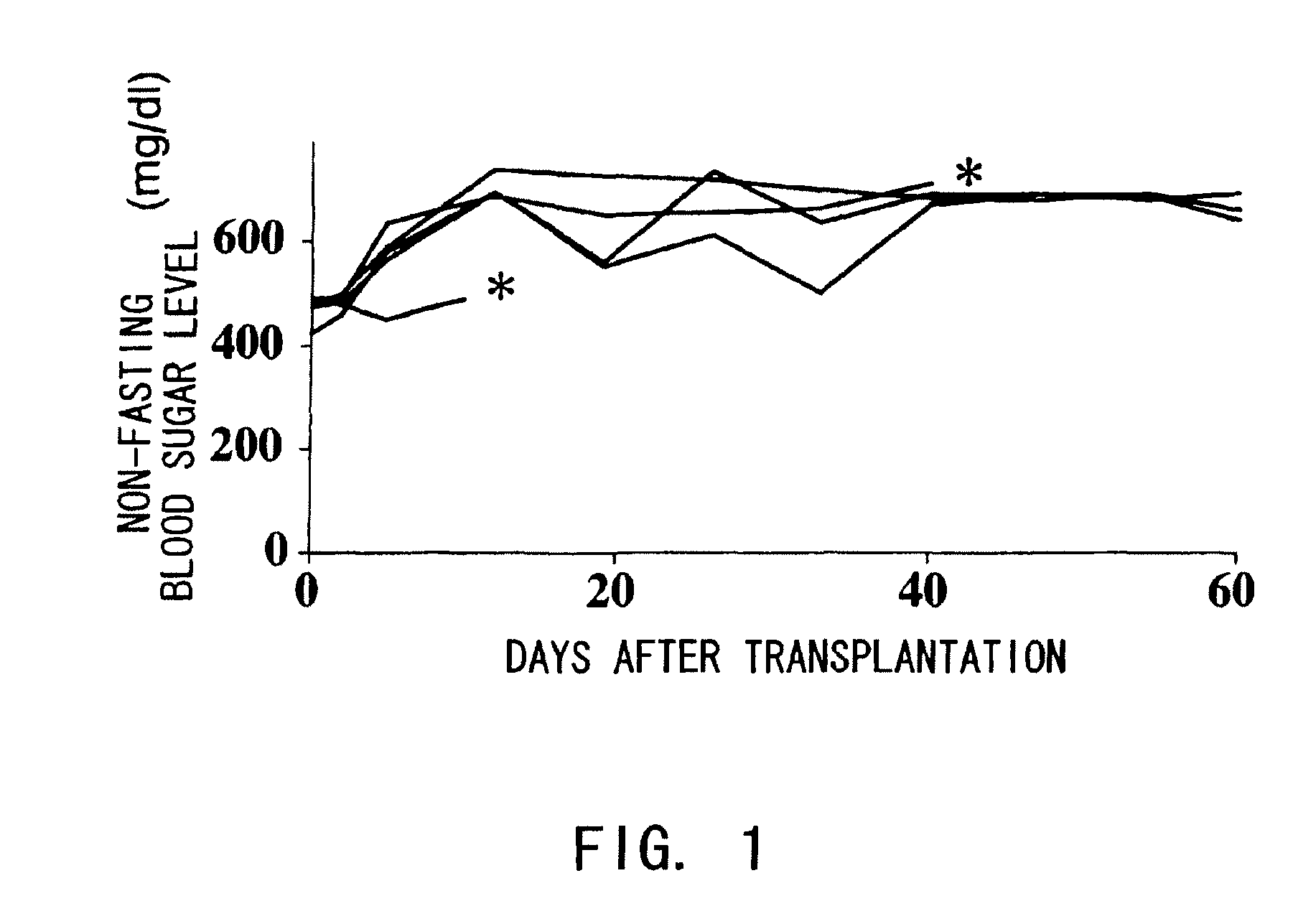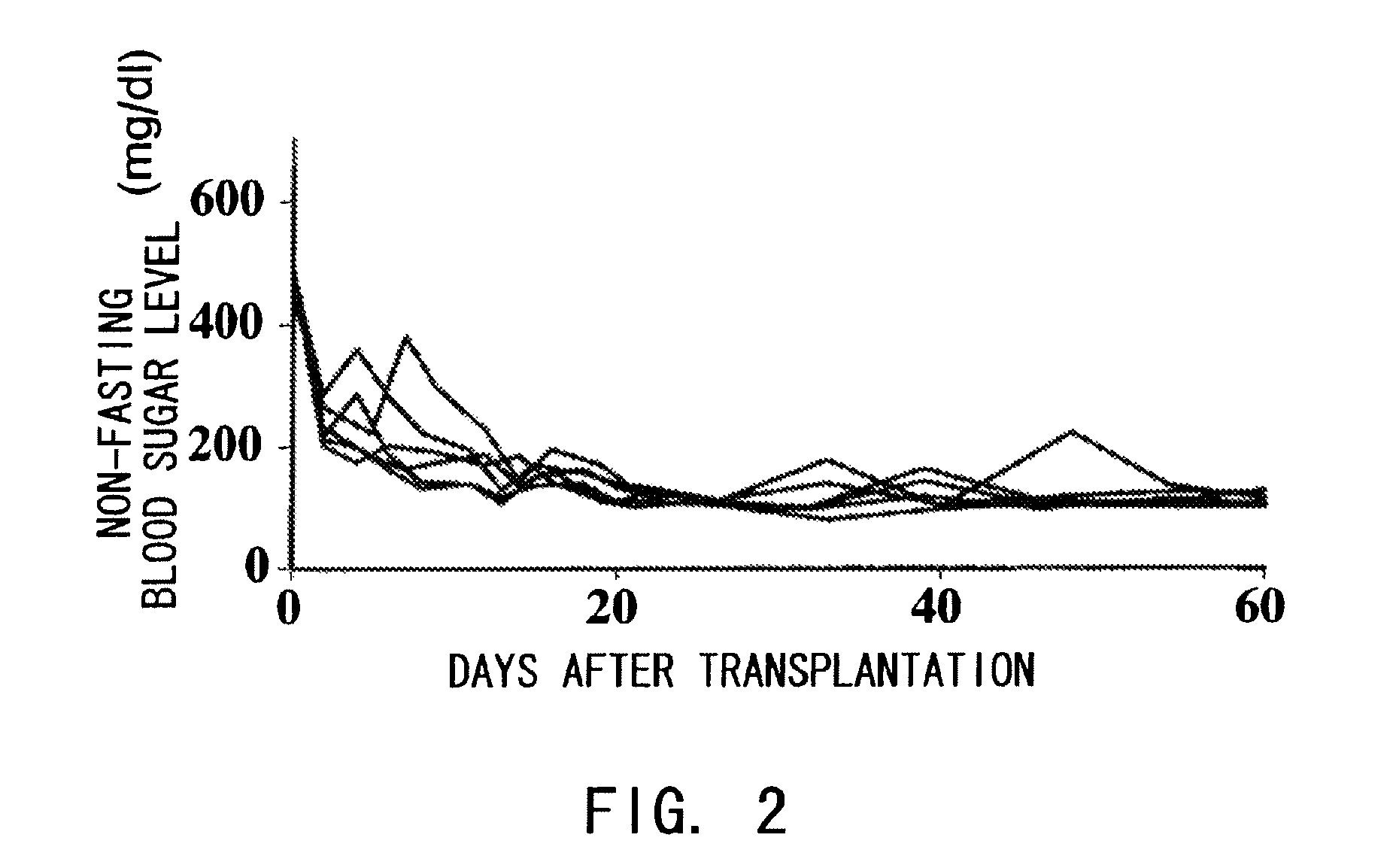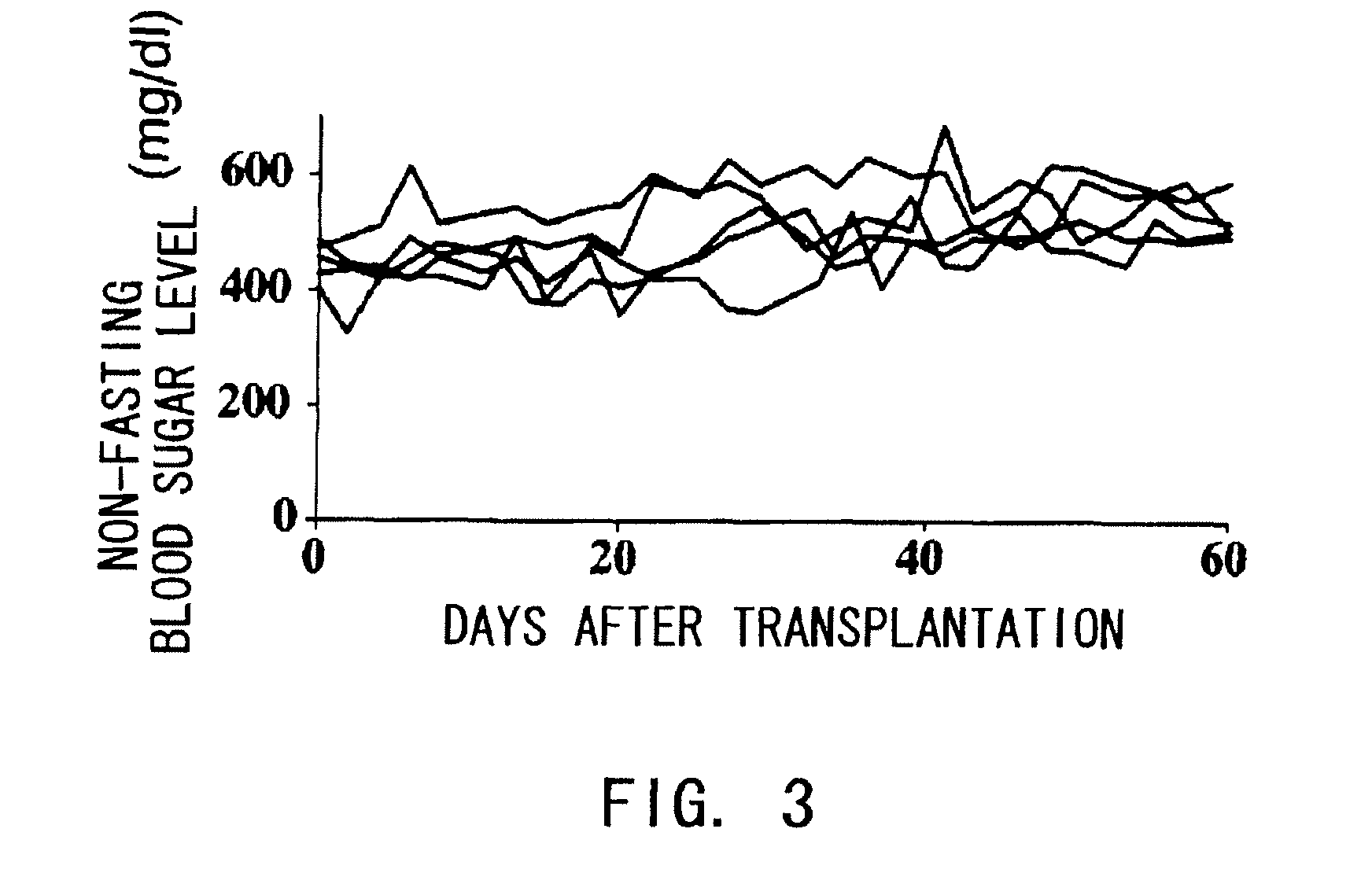Agents for suppressing damage to transplanted islets after islet transplantation
a technology for transplanted islets and agents, applied in antibody medical ingredients, immunological disorders, metabolism disorders, etc., can solve the problems of severe therapeutic problems, fatal hypoglycemia, and strict blood sugar control, so as to suppress the damage to transplanted islets, and improve the viability of islets
- Summary
- Abstract
- Description
- Claims
- Application Information
AI Technical Summary
Benefits of technology
Problems solved by technology
Method used
Image
Examples
example 1
Investigation into the Suppression of Damage to Transplanted Islets after Transplantation of Isogenic Islets, where the Effect is Due to Administration of Anti-IL-6 Receptor Antibodies
[0195]Diabetic recipient mice were prepared by intravenously administering streptozotocin (180 mg / kg) to male C57BL / 6 mice. Streptozotocin is an agent that selectively destroys pancreatic Langerhans islets. A single administration of streptozotocin eliminates the majority of B cells, and thus induces type 1 diabetes.
[0196]Without islet transplant, all mice maintained hyperglycemic states (FIG. 1). Three to five days after streptozotocin administration, isolated isogenic mouse islets were transplanted to the livers of diabetic mice via the portal vein. The islets were isolated from donor pancreas using the collagenase-based methods.
[0197]200 islets can be isolated from a single mouse pancreas. In the case of 400 donor islets from two mice, normal blood sugar levels were restored after transplantation to...
example 2
Investigation into the Suppression of Inflammatory Cytokine Production, where the Effect is Due to Administration of Anti-IL-6 Receptor Antibodies
[0202]Flow cytometry assay methods were used to investigate whether administration of the anti-IL-6 receptor antibodies of the present invention suppressed the post-transplantation production of inflammatory cytokines by infiltrating cells.
[0203]200 isogenic islets were transplanted to the livers of streptozotocin-diabetic mice, and after six hours the animals were sacrificed, their livers were excised, and hepatic mononuclear cells were isolated and analyzed by flow cytometry (FIG. 7).
[0204]IFN-γ and TNF-α production was not observed in hepatic mononuclear cells from untreated (naïve) mice. IFN-γ and TNF-α production was enhanced in hepatic mononuclear cells from the control group, which was not administered with anti-IL-6 receptor antibodies. IFN-γ and TNF-α production was not observed in the hepatic mononuclear cells of mice to which an...
example 3
Investigation into the Suppression of Damage to Transplanted Islets in Allogenic Islet Transplantation, where the Effect is Due to Administration of Anti-IL-6 Receptor Antibodies
[0205]Diabetic recipient mice were prepared by intravenously administering streptozotocin (180 mg / kg) to male C57BL / 6 mice. Three to five days after streptozotocin administration, isolated allogenic mouse (BALB / c) islets were transplanted to the livers of diabetic mice via the portal vein. Islets were isolated from donor pancreas using collagenase-based methods. Blood sugar levels were determined by the same method as described in Example 1.
[0206]After the transplantation of 200 islets, 500 μg of anti-IL-6 receptor antibody (MR16-1) was intraperitoneally administered three times (days 0, 2, and 4), and 200 μg of anti-CD4 antibody was intraperitoneally administered once at the same tame as the first administration of anti-IL-6 receptor antibody, and normal blood sugar levels were restored in all recipients af...
PUM
| Property | Measurement | Unit |
|---|---|---|
| molecular weight | aaaaa | aaaaa |
| pH | aaaaa | aaaaa |
| molecular weight | aaaaa | aaaaa |
Abstract
Description
Claims
Application Information
 Login to View More
Login to View More - R&D
- Intellectual Property
- Life Sciences
- Materials
- Tech Scout
- Unparalleled Data Quality
- Higher Quality Content
- 60% Fewer Hallucinations
Browse by: Latest US Patents, China's latest patents, Technical Efficacy Thesaurus, Application Domain, Technology Topic, Popular Technical Reports.
© 2025 PatSnap. All rights reserved.Legal|Privacy policy|Modern Slavery Act Transparency Statement|Sitemap|About US| Contact US: help@patsnap.com



